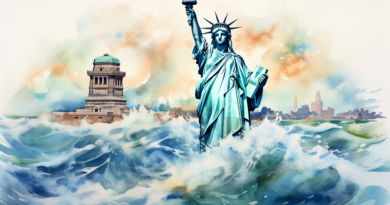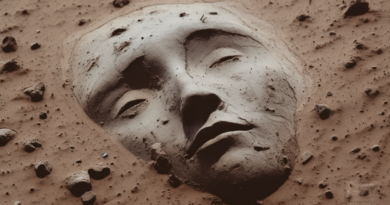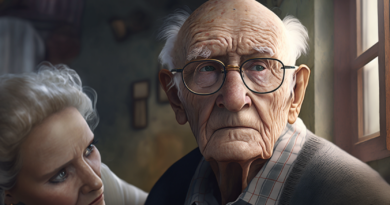Será que a ciência atual permite que congelemos corpos humanos e os tragamos de volta à vida? A história de James Bedford, o primeiro ser humano a ser criogenicamente congelado, nos leva a uma jornada intrigante pelo campo da criobiologia. Descubra os desafios e as inspirações da natureza na busca da preservação humana, e as implicações éticas e legais que envolvem essa tecnologia inovadora.
| Audio | |
|---|---|
Normal | Slow |
| English Transcript | Tradução |
| On January 12th, 1967, James Bedford passed away. | Em 12 de janeiro de 1967, James Bedford faleceu. |
| But— he had a plan to cheat death. | No entanto, ele tinha um plano para enganar a morte. |
| Bedford was the first person to be cryogenically frozen. | Bedford foi a primeira pessoa a ser congelada criogenicamente. |
| This process promised to preserve his body until a theoretical future when humanity could cure any illness, and essentially, reverse death. | Esse processo prometia preservar seu corpo até um futuro teórico em que a humanidade pudesse curar qualquer doença e, essencialmente, reverter a morte. |
| This is the dream of cryonics. | Este é o sonho da criônica. |
| But here’s the catch: to revive people in the future, we need to properly preserve them in the present. | Mas há um porém: para reviver as pessoas no futuro, precisamos preservá-las adequadamente no presente. |
| So, is it currently possible to freeze a human, preserve them indefinitely, and then safely thaw them out? | Então, é atualmente possível congelar um ser humano, preservá-lo indefinidamente e, em seguida, descongelá-lo com segurança? |
| To understand the hurdles of human cryopreservation, we need to leave the theoretical realm of cryonics, and turn to the scientific field of cryobiology. | Para entender os desafios da criopreservação humana, precisamos sair do reino teórico da criônica e nos voltar para o campo científico da criobiologia. |
| This discipline studies the effects of low temperatures on various living systems, and it is true that decreasing an organism’s temperature also decreases its cellular function. | Essa disciplina estuda os efeitos de baixas temperaturas em vários sistemas vivos, e é verdade que diminuir a temperatura de um organismo também diminui sua função celular. |
| For example, at temperatures below -130 degrees Celsius, human cellular activity grinds to a halt. | Por exemplo, a temperaturas abaixo de -130 graus Celsius, a atividade celular humana para completamente. |
| So if you could bring an entire human body below that temperature, theoretically you could preserve it indefinitely. | Portanto, teoricamente, se você pudesse reduzir a temperatura de todo o corpo humano abaixo desse ponto, poderia preservá-lo indefinidamente. |
| The hard part is doing this without damaging the body. | A parte difícil é fazer isso sem danificar o corpo. |
| For example, let's try to freeze a single red blood cell. | Por exemplo, vamos tentar congelar uma única célula vermelha do sangue. |
| It typically sits at a temperature of 37 degrees Celsius in a solution of water and substances known as chemical solutes, which dissolve under certain conditions. | Normalmente, ela está a uma temperatura de 37 graus Celsius em uma solução de água e substâncias conhecidas como solutos químicos, que se dissolvem em certas condições. |
| But once the temperature drops below freezing, water outside and inside the cell hardens into damaging ice crystals. | Mas assim que a temperatura cai abaixo do ponto de congelamento, a água dentro e fora da célula se transforma em cristais de gelo danosos. |
| Without the correct concentration of water, the chemical solutes are unable to dissolve. | Sem a concentração correta de água, os solutos químicos são incapazes de se dissolver. |
| And as the water freezes, they become increasingly concentrated in a destructive process known as osmotic shock. | E à medida que a água congela, eles se concentram cada vez mais em um processo destrutivo conhecido como choque osmótico. |
| Without any intervention, these factors are guaranteed to destroy our red blood cell before it reaches -130 degrees. | Sem qualquer intervenção, esses fatores destruirão nossa célula vermelha do sangue antes de atingir -130 graus. |
| Not all cells are this fragile, and many animals have evolved to survive extreme conditions. | Nem todas as células são tão frágeis, e muitos animais evoluíram para sobreviver a condições extremas. |
| Some cold-tolerant fish synthesize antifreeze proteins to prevent ice formation at sub-zero temperatures. | Alguns peixes tolerantes ao frio sintetizam proteínas anticongelamento para evitar a formação de gelo em temperaturas abaixo de zero. |
| And freeze-tolerant frogs use protective agents to survive when up to 70% of their body water is trapped as ice. | E sapos tolerantes ao congelamento usam agentes de proteção para sobreviver quando até 70% de sua água corporal fica presa no gelo. |
| It's unlikely that any one creature holds the secret to human cryopreservation. | É improvável que qualquer criatura detenha o segredo da criopreservação humana. |
| But by researching these adaptations, scientists have developed remarkable preservation technologies, some of which are already employed in medicine. | Mas pesquisando essas adaptações, os cientistas desenvolveram notáveis tecnologias de preservação, algumas das quais já são usadas na medicina. |
| However, researchers are still trying to improve cryopreservation technology to better manage the ice problem. | No entanto, os pesquisadores ainda estão tentando melhorar a tecnologia de criopreservação para lidar melhor com o problema do gelo. |
| To prevent ice from forming some of these have been adapted from compounds in nature, while others have been designed to take advantage of cryobiology’s guiding principles. | Para evitar a formação de gelo, algumas dessas técnicas foram adaptadas a partir de compostos encontrados na natureza, enquanto outras foram projetadas para aproveitar os princípios orientadores da criobiologia. |
| But in practice, these chemicals allow researchers to store living systems in a glassy state with reduced molecular activity and no damaging ice. | Mas, na prática, esses produtos químicos permitem que os pesquisadores armazenem sistemas vivos em um estado vítreo com atividade molecular reduzida e sem a formação de gelo prejudicial. |
| Vitrification is ideal for cryonics, and would help preserve organs and other tissues for medical procedures. | A vitrificação é ideal para a criônica e ajudaria a preservar órgãos e outros tecidos para procedimentos médicos. |
| But it’s incredibly difficult to achieve. | Mas é incrivelmente difícil de alcançar. |
| CPAs can be toxic in the high quantities required for large scale vitrification. | Os CPAs podem ser tóxicos em grandes quantidades necessárias para a vitrificação em larga escala. |
| And even with these chemicals, preventing ice formation requires rapid cooling that lowers temperatures uniformly throughout the material. | E mesmo com esses produtos químicos, prevenir a formação de gelo requer resfriamento rápido que baixa as temperaturas uniformemente em todo o material. |
| That’s relatively easy when vitrifying single cells or small pieces of tissue. | Isso é relativamente fácil quando se vitrificam células individuais ou pequenos pedaços de tecido. |
| But as the material becomes more complex and contains larger quantities of water, staying ahead of ice formation gets challenging. | Mas à medida que o material se torna mais complexo e contém quantidades maiores de água, manter-se à frente da formação de gelo se torna desafiador. |
| And even if we could successfully vitrify complex living material, we'd only be halfway to using it. | E mesmo que pudéssemos vitrificar com sucesso material vivo complexo, ainda estaríamos apenas a meio caminho de usá-lo. |
| Vitrified tissue also needs to be uniformly warmed to prevent the formation of ice, or worse, cracks. | O tecido vitrificado também precisa ser aquecido uniformemente para evitar a formação de gelo, ou pior, rachaduras. |
| To date, researchers have been able to vitrify and partially recover small structures like blood vessels, heart valves, and corneas. | Até o momento, os pesquisadores conseguiram vitrificar e recuperar parcialmente pequenas estruturas como vasos sanguíneos, válvulas cardíacas e córneas. |
| But none of these are anywhere near the size and complexity of a whole human being. | Mas nenhum deles se aproxima do tamanho e complexidade de um ser humano inteiro. |
| So if it’s not currently possible to cryopreserve a person, what does this mean for Bedford and his frozen peers? | Então, se não é atualmente possível criopreservar uma pessoa, o que isso significa para Bedford e seus colegas congelados? |
| The sad truth is that current cryonic preservation techniques only offer their patients false hope. | A triste verdade é que as técnicas de preservação criônica atuais oferecem aos seus pacientes uma falsa esperança. |
| As practiced, they’re both unscientific and deeply destructive, irreparably damaging the body’s cells, tissues, and organs. | Como praticadas, elas são tanto não científicas quanto profundamente destrutivas, danificando irreparavelmente as células, tecidos e órgãos do corpo. |
| Some devotees might argue that, like death and disease, this damage may be reversible one day. | Alguns devotos podem argumentar que, como a morte e a doença, esse dano pode ser reversível um dia. |
| Even if scientists could revive people through cryonic preservation, there’s a whole suite of ethical, legal, and social implications which cast doubts on the technology’s overall benefits. | Mesmo que os cientistas pudessem reviver as pessoas por meio da criopreservação, há uma série de implicações éticas, legais e sociais que lançam dúvidas sobre os benefícios gerais da tecnologia. |
| But for now, the dream of cryonics is still on ice. | Mas, por enquanto, o sonho da criônica ainda está congelado. |
Contagem de palavras
A tabela abaixo exibe as palavras encontradas neste vídeo, bem como o número de vezes em que aparecem.
Veja também: Para que serve esta tabela?
| Freq. | Palavra | Freq. | Palavra | Freq. | Palavra |
|---|---|---|---|---|---|
| 30 | to | 27 | the | 23 | and |
| 20 | of | 12 | a | 10 | ice |
| 9 | s | 9 | it | 9 | is |
| 9 | in | 9 | but | 7 | this |
| 7 | that | 7 | for | 6 | water |
| 6 | these | 6 | human | 6 | as |
| 6 | are | 5 | preserve | 5 | have |
| 5 | could | 5 | body | 5 | be |
| 4 | we | 4 | temperatures | 4 | temperature |
| 4 | some | 4 | on | 4 | if |
| 4 | formation | 4 | damaging | 4 | cryonics |
| 3 | without | 3 | which | 3 | when |
| 3 | them | 3 | so | 3 | researchers |
| 3 | prevent | 3 | preservation | 3 | material |
| 3 | living | 3 | freeze | 3 | even |
| 3 | degrees | 3 | death | 3 | cryopreservation |
| 3 | cells | 3 | cell | 3 | blood |
| 3 | below | 3 | been | 3 | bedford |
| 3 | at | 3 | any | 2 | you |
| 2 | would | 2 | with | 2 | whole |
| 2 | vitrify | 2 | vitrification | 2 | uniformly |
| 2 | tolerant | 2 | tissues | 2 | tissue |
| 2 | they | 2 | theoretical | 2 | their |
| 2 | technology | 2 | systems | 2 | survive |
| 2 | still | 2 | solutes | 2 | small |
| 2 | single | 2 | scientists | 2 | revive |
| 2 | red | 2 | quantities | 2 | process |
| 2 | possible | 2 | person | 2 | people |
| 2 | organs | 2 | or | 2 | only |
| 2 | one | 2 | not | 2 | need |
| 2 | like | 2 | known | 2 | indefinitely |
| 2 | his | 2 | future | 2 | frozen |
| 2 | from | 2 | example | 2 | dream |
| 2 | dissolve | 2 | destructive | 2 | currently |
| 2 | cryonic | 2 | cryobiology | 2 | conditions |
| 2 | complex | 2 | chemicals | 2 | chemical |
| 2 | celsius | 2 | cellular | 2 | an |
| 2 | also | 2 | activity | 1 | zero |
| 1 | worse | 1 | while | 1 | what |
| 1 | was | 1 | warmed | 1 | vitrifying |
| 1 | vitrified | 1 | vessels | 1 | various |
| 1 | valves | 1 | using | 1 | use |
| 1 | us | 1 | up | 1 | until |
| 1 | unscientific | 1 | unlikely | 1 | understand |
| 1 | under | 1 | unable | 1 | typically |
| 1 | turn | 1 | trying | 1 | try |
| 1 | truth | 1 | true | 1 | trapped |
| 1 | toxic | 1 | throughout | 1 | through |
| 1 | there | 1 | theoretically | 1 | then |
| 1 | thaw | 1 | th | 1 | technologies |
| 1 | techniques | 1 | take | 1 | synthesize |
| 1 | suite | 1 | successfully | 1 | substances |
| 1 | sub | 1 | studies | 1 | structures |
| 1 | store | 1 | staying | 1 | state |
| 1 | solution | 1 | social | 1 | size |
| 1 | sits | 1 | shock | 1 | secret |
| 1 | scientific | 1 | scale | 1 | safely |
| 1 | sad | 1 | reversible | 1 | reverse |
| 1 | researching | 1 | requires | 1 | required |
| 1 | remarkable | 1 | relatively | 1 | reduced |
| 1 | recover | 1 | realm | 1 | reaches |
| 1 | re | 1 | rapid | 1 | proteins |
| 1 | protective | 1 | properly | 1 | promised |
| 1 | procedures | 1 | problem | 1 | principles |
| 1 | preventing | 1 | present | 1 | practiced |
| 1 | practice | 1 | plan | 1 | pieces |
| 1 | peers | 1 | patients | 1 | passed |
| 1 | partially | 1 | part | 1 | overall |
| 1 | outside | 1 | out | 1 | our |
| 1 | others | 1 | other | 1 | osmotic |
| 1 | organism | 1 | once | 1 | offer |
| 1 | now | 1 | none | 1 | no |
| 1 | needs | 1 | near | 1 | nature |
| 1 | more | 1 | molecular | 1 | might |
| 1 | medicine | 1 | medical | 1 | mean |
| 1 | may | 1 | many | 1 | manage |
| 1 | lowers | 1 | low | 1 | let |
| 1 | legal | 1 | leave | 1 | larger |
| 1 | large | 1 | january | 1 | james |
| 1 | its | 1 | irreparably | 1 | into |
| 1 | intervention | 1 | inside | 1 | incredibly |
| 1 | increasingly | 1 | improve | 1 | implications |
| 1 | illness | 1 | ideal | 1 | hurdles |
| 1 | humanity | 1 | however | 1 | hope |
| 1 | holds | 1 | high | 1 | here |
| 1 | help | 1 | heart | 1 | he |
| 1 | hardens | 1 | hard | 1 | halt |
| 1 | halfway | 1 | had | 1 | guiding |
| 1 | guaranteed | 1 | grinds | 1 | glassy |
| 1 | gets | 1 | function | 1 | frogs |
| 1 | freezing | 1 | freezes | 1 | fragile |
| 1 | forming | 1 | fish | 1 | first |
| 1 | field | 1 | false | 1 | factors |
| 1 | extreme | 1 | evolved | 1 | ethical |
| 1 | essentially | 1 | entire | 1 | employed |
| 1 | effects | 1 | easy | 1 | drops |
| 1 | doubts | 1 | doing | 1 | does |
| 1 | disease | 1 | discipline | 1 | difficult |
| 1 | devotees | 1 | developed | 1 | destroy |
| 1 | designed | 1 | deeply | 1 | decreasing |
| 1 | decreases | 1 | day | 1 | date |
| 1 | damage | 1 | current | 1 | cure |
| 1 | crystals | 1 | cryopreserve | 1 | cryogenically |
| 1 | creature | 1 | cracks | 1 | cpas |
| 1 | correct | 1 | corneas | 1 | cooling |
| 1 | contains | 1 | concentration | 1 | concentrated |
| 1 | compounds | 1 | complexity | 1 | cold |
| 1 | cheat | 1 | challenging | 1 | certain |
| 1 | catch | 1 | cast | 1 | can |
| 1 | by | 1 | bring | 1 | both |
| 1 | better | 1 | benefits | 1 | being |
| 1 | before | 1 | becomes | 1 | become |
| 1 | away | 1 | argue | 1 | anywhere |
| 1 | antifreeze | 1 | animals | 1 | already |
| 1 | allow | 1 | all | 1 | ahead |
| 1 | agents | 1 | advantage | 1 | adapted |
| 1 | adaptations | 1 | achieve | 1 | able |










